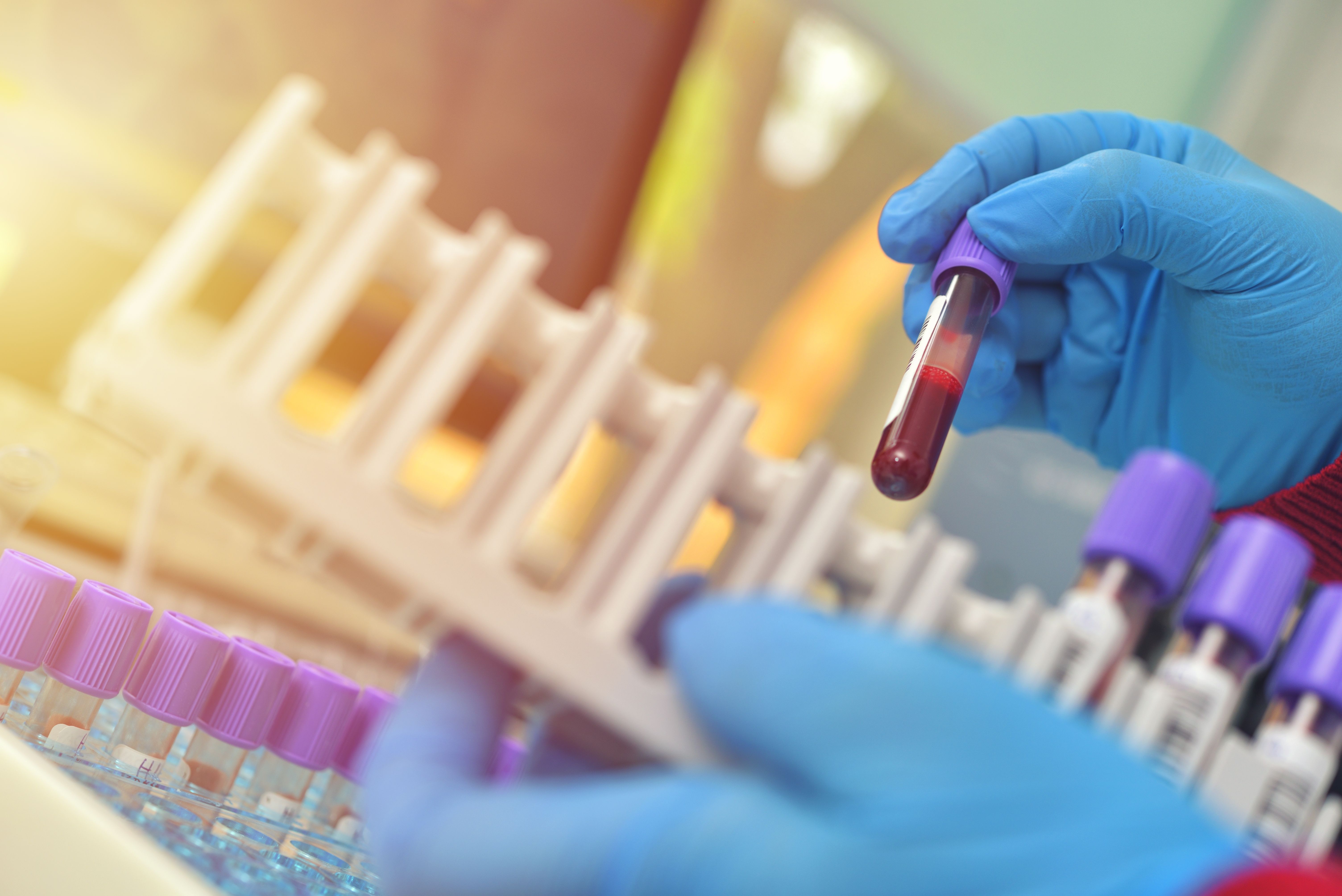- Center on Health Equity & Access
- Clinical
- Health Care Cost
- Health Care Delivery
- Insurance
- Policy
- Technology
- Value-Based Care
Novel Blood Biomarkers Show Potential for Early Liver Cancer Diagnosis
A predictive model using plasma proteins as biomarkers predicted hepatocellular carcinoma development more accurately than a model based on traditional lifestyle risk factors in a recent study.
A predictive model using plasma proteins as biomarkers predicted hepatocellular carcinoma (HCC) more accurately than traditional lifestyle risk factors in a study published in Journal of the National Cancer Institute,1 suggesting that circulating proteins are associated with HCC years prior to diagnosis.
“Liver cancer rates are rapidly increasing, and liver cancer has a high mortality rate, but if we can diagnose it early, therapeutic interventions can be potentially curative,” lead author Xinyuan Zhang, PhD, of the Channing Division of Network Medicine at Brigham and Women’s Hospital, said in a statement.2 “We need to have a way to detect this form of cancer early enough to intervene with surgery or liver transplantation to treat the disease before it becomes metastatic.”
HCC is usually diagnosed at late stages, which contributes to a median survival of less than 1 year among patients with liver cancer.1 Several tools have been evaluated for diagnosing HCC, including liver ultrasonography, alpha-fetoprotein (AFP) levels, or both, but these tools are not accurate enough to detect HCC early. Ultrasonography has shown 47% sensitivity in detecting early-stage HCC, while serum AFP only improves the sensitivity to 63%.3 Other methods, such as CT and MRI, may perform better but are less accessible and cost more, limiting widespread uptake.
Blood samples | Image credit: Daniel CHETRONI – stock.adobe.com

“There is a lack of effective surveillance strategies for early HCC detection in clinical practice,” the authors wrote.1 “Thus, identifying pre-diagnostic biomarkers associated with HCC will inform not only disease etiopathology, but also inform earlier detection and even therapeutic targets.”
The authors identified circulating protein biomarkers using proteomics, or systemic profiling of proteins, to determine whether protein biomarkers in blood could inform pathophysiology and diagnose HCCC early. In a nested case-control study, prospectively collected plasma samples from 2 large US cohort studies were analyzed with SOMAscan proteomics, and the findings were validated in the same cohorts and an independent cohort in the United Kingdom.
Using data and blood samples from the Nurses’ Health Study (NHS) and the Health Professionals Follow-up Study (HPFS), a total of 1305 prediagnostic SOMAscan proteins were assessed from 54 pairs of healthy individuals who later developed HCC and matched controls who did not develop HCC. Among patients who developed HCC, the mean (SD) time from blood collection to HCC incidence was 12.7 (6.1) years. Baseline characteristics between the HCC cohort and matched controls were similar, but those with HCC were more likely to have higher body mass index (P = .007) and diabetes (P = .11) compared with controls.
A total of 56 elevated proteins were identified in the HCC cohort compared with matched controls without HCC, with an absolute fold-change greater than 1.2 and a conditional regression analysis Wald test P < .05. Eight representative, highly statistically significant prediagnostic biomarkers were increased in HCC: CHI3L1, GDF15, SELE, IL1RN, PIGR, ENPP7, THBS2, LGALS3BP. Some of these play roles in inflammatory processes, other immune functions, or vascular processes, the authors noted.
Four of the proteins—CHI3L1, GDF15, IL1RN, and SELE—were found to be strongly positively associated with HCC in the SOMAscan assay, even after adjusting for traditional risk factors. These were validated by enzyme linked immunosorbent assay (ELISA) in the NHS/HPFS cohort, with ORs of 14.7, 14.3, 2.48, and 2.65 for CHI3L1, GDF15, IL1RN, and SELE, respectively (P < .05), and fold changes ranging from 1.48 to 3.33. In the UKB-PPP cohort, they were validated by the Olink platform, with HRs ranging from 1.90 to 3.93 (P < .05).
A logistic regression model of the 4 proteins strongly associated with HCC had an area under the curve (AUC) of 0.83, compared with an AUC of 0.67 with a basic model using traditional risk factors. When validated in the UKB-PPP cohort, the AUC was consistently 0.88 for HCC prediction with the model based on proteomics.
While the number of cases in the study was small because the natural incidence of HCC is low, the results were consistent across data sets, populations, and assay types, which is promising for the 4 proteins identified as strongly correlated with HCC incidence.
“Even though further investigation in additional populations is absolutely needed, our results reveal a robust circulating protein profile associated with liver cancer years before diagnosis, which is remarkable,” co–senior author Xuehong Zhang, MBBS, ScD, who conducted work on this study while at the Channing Division of Network Medicine at Brigham but is now at Yale, said.2
References
1. Zhang X, Zhao L, Ngo LH, et al. Pre-diagnostic plasma proteomics profile for hepatocellular carcinoma. J Natl Cancer Inst. Published online May 1, 2024. doi:10.1093/jnci/djae079
2. Researchers identify biomarkers in blood to predict liver cancer. News release. Mass General Brigham. April 30, 2024. Accessed May 1, 2024. https://massgeneralbrigham.org/en/about/newsroom/press-releases/researchers-identify-biomarkers-in-blood-to-predict-liver-cancer
3. Tzartzeva K, Obi J, Rich NE, et al. Surveillance imaging and alpha fetoprotein for early detection of hepatocellular carcinoma in patients with cirrhosis: a meta-analysis. Gastroenterology. 2018;154(6):1706-1718.e1. doi:10.1053/j.gastro.2018.01.064
